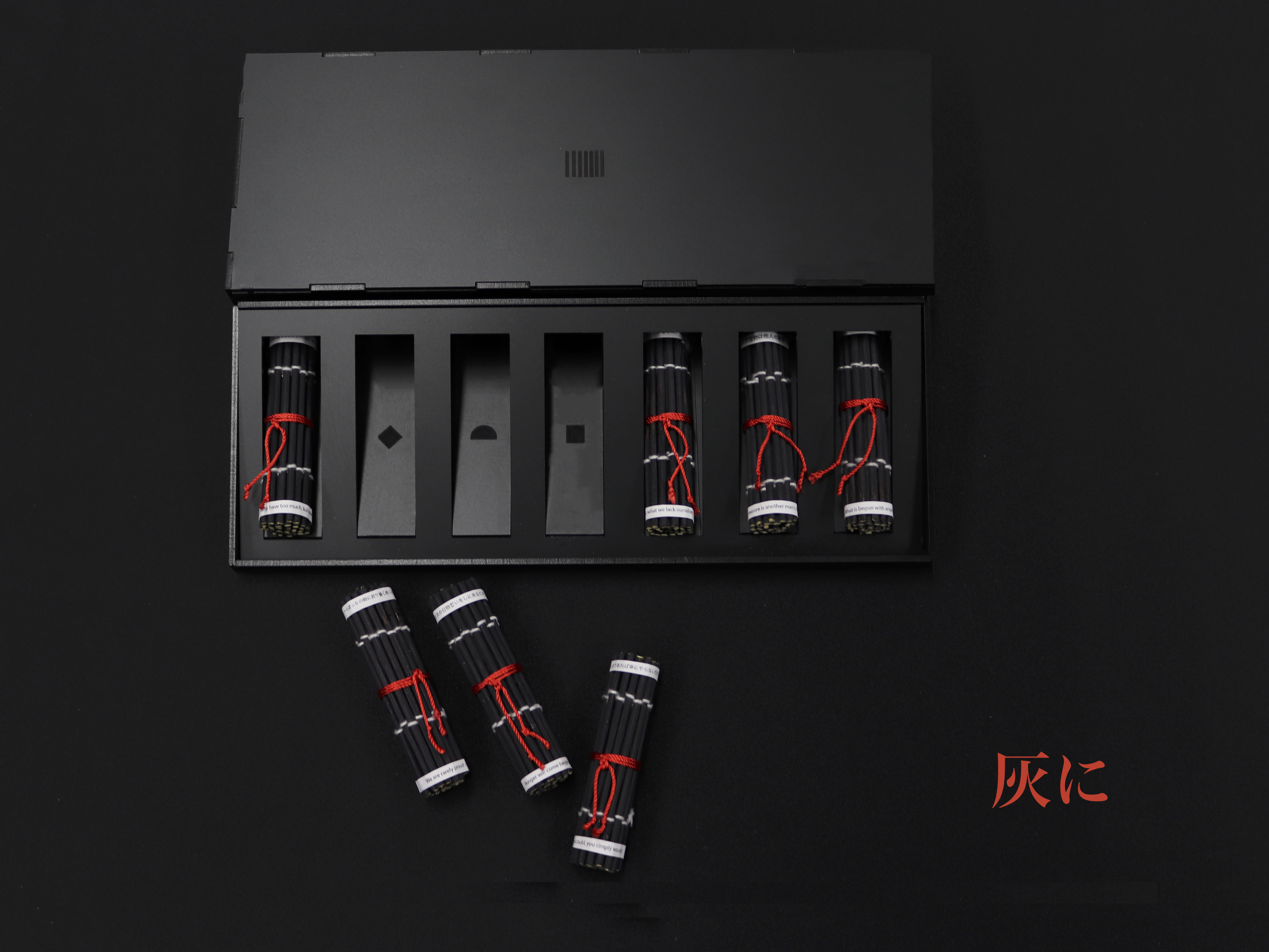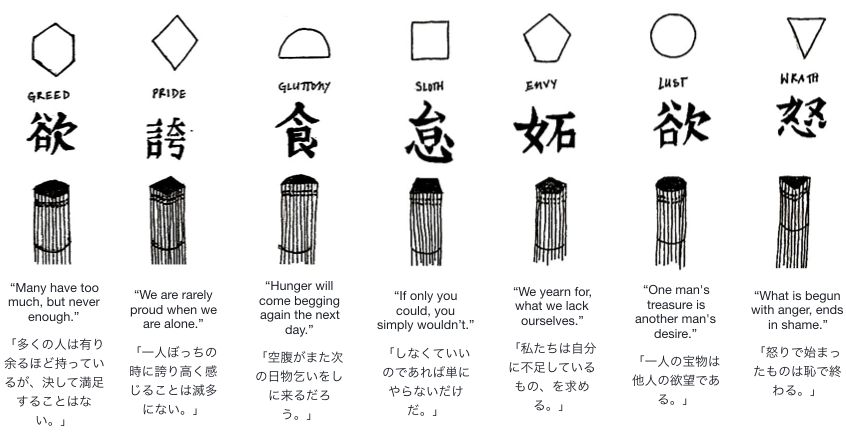
INTO ASHES
灰に
Kyoto University of Art
Wanovation: Designing with Wa Philosophy
2019
Kyoto University of Art
Wanovation: Designing with Wa Philosophy
2019
灰に is a project inspired by Mujō-Kan (a vision of transiency) within Wa Philosophy. Exploring the impermanence surrounding us and the beauty of the moment, it is a combination of polish tradition with zen philosophy to create a ritualistic experience around the action of starting a fire and its later observation.
Mujō-Kan
無常観
A vision of transiency
無常観 is the transient gentle sadness at the passing of things through time, mixed with a deeper gentle sadness about this state being the reality of life. It is the awareness of the impermanence surrounding us and the beauty of the moment. A vision of transiency also known as ‘Mono no aware’ - a nostalgic thought that all things happen to exist, to change and become extinct.

灰に is a unique collection of fire starters stimulating reflection on the seven deadly sins and a latter liberation through the process of turning them into ashes.
The product mixes polish tradition with Japanese zen philosophy in order to create a ritualistic experience around the action of starting a fire and the nostalgic observation of wood turning into ash. Each firestarter represents one ubiquitous idea, a sin that needs to be let go off to reach a “reawakening”.

The representation of the sins almost goes unnoticed at first glance, however even with the subtle and minimalistic design, inner thoughts and feelings are awakened within this area for interpretation. With the ignition of each fire starter, we reflect on our nature as a human and undergo a process of regeneration. As we observe the natural decay of the symbolic sin, one turns into ashes what they believe once stained their being.



Into Ashes let me braid together two cultural threads that have shaped my worldview: my Polish heritage and my study of Japanese Zen philosophy. At first glance, Polish folk traditions and Zen Buddhism might seem worlds apart – one rooted in Slavic Catholicism and pagan echoes, the other in Buddhist practice and Japanese aesthetics. Yet I discovered a deep harmony in their approaches to impermanence and ritual, which became the heart of this work. Both cultures, in their way, understand the language of ashes and renewal. In Poland, there is a palpable awareness of life’s fragility, with traditions like All Saints’ Day, when cemeteries flicker from the multiplicity of candles against the night; each flame a memory of someone gone. Japanese Zen mirrors this with its profound acceptance of impermanence (mujō), where transience is not mourned but embraced. Mujō Kan (無常観) is the transient gentle sadness at the passing of things through time, mixed with a deeper gentle sadness about this state being the reality of life. It is the awareness of the impermanence surrounding us and the beauty of the moment. A vision of transiency also known as ‘Mono no aware’ - a nostalgic thought that all things happen to exist, to change and become extinct.
In Into Ashes, I found the intersection of these cultures in the element of fire and the act of letting go. Into Ashes (灰に) is a collection of fire starters stimulating reflection on the seven deadly sins and a latter liberation through the process of turning them into ashes. Each firestarter encapsulates one human vice, which is reflected upon as a constant haunting that is to be addressed. This act resonates with Polish folk practices (we have a tradition of burning effigies at the end of winter to symbolise the clearing of the old) and with Zen-influenced ceremonies of purification. Both cultures cherish the present moment through ritual; there is a shared understanding that the act of remembrance is also an act of mindfulness. Into Ashes became an ode to that understanding. By integrating these elements, I hoped to show that the distance between Warsaw and Kyoto is not so vast; both teach us to honour the transient. The result makes that transience into a modern ritual, turning our stories, no matter where they hail from, into ashes that light the way forward.